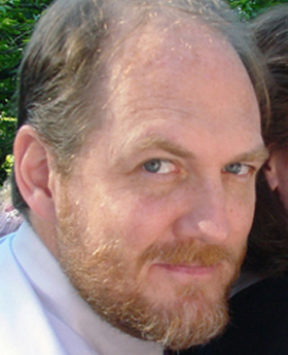Editors Note: Dana Greenlees weekly technology column is running a day early to give the editor more time to work on a story for tomorrows paper, since nobody returned the editors phone calls yesterday. Such are the hazards of the news business.
I want to be a futurologist when I grow up. Thats not a statement you expect to hear from a young person. But Kirkland resident Glen Hiemstra loves being a futurist, which is the practice of futures.
Hiemstra is the Founder and owner of Futurist.com and author of FuturistNews and Beyond 2020: The Shape of Things to Come. He was educated at Whitworth College, the University of Oregon and the University of Washington.
He is not alone. Futurists by the thousands converge at the General Assembly of the World Future Society every three years to ponder the developments shaping the 21st century, including science, technology, the Internet, transportation, population, social trends, energy, economy, health care and entertainment.
Many futurists ask what the future will be like, but Hiemstra asks, What future do we prefer? We asked him to give us an insight into his passion for whats around the bend.
Q: Tell me a bit about Futurist.com.
Hiemstra: Futurist.com is a Web site that offers information about how to think about the future and learn about the various aspects of the future from space to science to science fiction to technology to population trends. Its also a keynote speaking and consulting company. I do a lot of speaking around the country about the shape of the future and how to plan for it.
Q: What is a futurist?
Hiemstra: There are about 1,200 professional members of the World Future Society (www.wfs.org), with 40,000 non-professional members worldwide. Most of us concentrate on three different aspects of the future. 1) Forecasting the future, using quantitative and qualitative means, 2) some are more interested in possible futures, imagining the future and writing science fiction like Arthur C. Clark, and 3) probably the largest group help companies and management teams develop long range plans to create the future. At Futurist.com, we do all three of these.
Q: Whats your philosophy on the course of future events?
Hiemstra: The future is creatable, so we have choices to make. The further out we look, the more choice-able the future is. If we plan for six months from now, a lot of things are already decided. If you look five, 10, 20 years out, what we decide now makes a bigger difference. The way we THINK about the future affects the first domino we push over, so if you change your picture of the future, youll push over a different domino. For instance, the film 2001: A Space Odyssey created an expectation for society of what the future would be like when it first came out in 1968 and can push a domino to create that future.
Q: How do you see the future evolve within the Internet industry?
Hiemstra: No question – it is in a transition phase of the Internet as an experiment to the Internet as a business enterprise. We fool ourselves into thinking that the Internet might be different than other shifts, in terms of never experiencing bumps in the road. This is just a classic shakedown. All of the early experimenters came up against that moment of one year ago where they had to face Can we be more than an experiment? and the answer for many was No.
I think that were going to see, though still a little ways down the road, a robust comeback in the consumer space on the Internet. The catalyst is the build out of bandwidth over the next five years, of high-speed connections to homes reaching a critical mass. We also go through societal technological shifts partly based on the change of generations who have grown up with the Internet, so over the next ten years or so, well see the emergence past the experimental stage into the true use and business phase.
Q: Do you look at older industries for perspective in predicting the future?
Hiemstra: Yes. A good analogy is the automobile. During the early adoption phase, the auto had to be cheap enough for everyone to have one and you had to build the bandwidth the road system so there was a reason and ability to move around, which took 20 years. The other reasonable comparison is in the early auto industry there were hundreds of experimental companies building autos in the mid 1920s. By the late 20s, we were down to the Big Three.
Q: Any social impacts that Internet will have on the world that we havent seen yet?
Hiemstra: One I get asked about a lot is what will happen to language and culture. We will see the Internet create more interest in and need for multiple language abilities. Theres something like 100,000 non-English Web sites.
Q: Other future trends?
Hiemstra: What is really anticipated and quite revolutionary are more non-human things communicating with each other via the wireless Internet. That is, a computer interacting with another computer interacting with a refrigerator interacting with a power transformer interacting with an automobile and so on. Devices will converse with each other, operate along side of humans. It will be complex but self-organizing as we change from stand-alone to integrated devices.
Q: How will voice recognition with a computer impact human communication?
Hiemstra: At the Human Interface Technology Lab, we study the interface between humans and computers, and augmented reality and virtual reality. Despite the huge increase in computing power, we still interact with our computers by wiggling our fingers at keyboards and looking at flat screens. Everything has changed except for those two things.
We already have automobiles where the climate control and radio and such are accessed by voice. In very short order over the next few years well see more devices with robust voice activation systems. Keyboards wont disappear, but in the future home we will have a variety of other ways to interact with devices such as pointing, clicking, speaking, typing, waving, and eye blinking instructions to a machine.
Q: We all want to know what is around the bend, but for many different reasons. How do I become a futurist?
Hiemstra: There is a good academic undergrad and masters degree program in futurists studies at the University of Houston, near NASA. One can also join the World Future Society and go to their conferences, or just pursue self-study.
Q: Any last thoughts?
Hiemstra: The growth of technology is just beginning. Its not over despite what it looked like last year. While much of the future is unpredictable and full of surprises, there are aspects of the future that are relatively knowable, if we take the time to look.
Dana Greenlee is a Web designer and co-host of the WebTalkGuys Radio Show, a Tacoma-based talk show featuring technology news and interviews.






